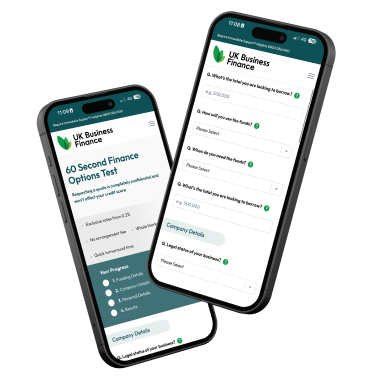Secured Loans
Secured loans for UK businesses
A secured business loan enables you to access funding which is secured against one or more of your business assets. This reduces the risks for the lenders and increases your chances of being approved. And with the right help, you’ll be able to access lower interest rates, longer terms and larger loan amounts than with an unsecured loan.
At UK Business Finance, we can help you find secured loans that are the right fit for your business. Just tell us what you need and we’ll search the whole market to bring you the best quotes. There are no fees for our service, so you can benefit from our market insight without any additional charge.
What is a secured business loan?
A secured business loan is a loan that uses one or more of your assets as security against the money you borrow. If your business cannot repay the loan, the lender can claim ownership of the asset and sell it to recover the loan amount. This reduces the risk for the lenders, which usually allows you to borrow more and at lower rates than with an unsecured loan. The lower risks also increase your likelihood of being approved.
You can use all sorts of business assets as security, including physical assets such as property, equipment and machinery and even intangible assets like trademarks and intellectual property. Lenders may also accept your personal assets as security. You can then access loan amounts ranging from £5,000 to £500,000 or more.
What are the benefits of secured business loans?
If you want capital to grow your business and you have assets to use as collateral, a secured business loan can be an effective way to raise the funding you need.
Here are some of the benefits:
- You can borrow larger loan amounts
- The repayments terms are usually longer, typically up to 10 years
- Lower interest rates over a longer term can lead to more affordable repayments
- Your application can still be accepted if you have bad credit
- You don’t need a solid trading history to be accepted - start-ups can apply
There are also a few things to think about. Secured loans can take several weeks to arrange as the lender will need to value your assets, so they’re not as quick as unsecured loans. You may also have to pay money upfront to cover valuation fees, and legal fees may apply if the lender places a legal charge on your property. A key business asset could also be at risk if you fail to keep up with the repayments.
Am I eligible for a secured business loan?
If your business owns high-value assets or you’re willing to put up personal assets as security, you’re likely to be eligible for a secured business loan.
The eligibility criteria differs from lender to lender but they will usually expect to see:
- Some business trading history - although start-ups can be accepted
- Your credit report
- Financial forecasts that show your business is viable and able to make the repayments
The amount you can borrow will depend on the value of the asset(s) you put up as security. The lender will value your assets and let you borrow up to 100% of that amount.
Find the right secured loan for your business
Use UK Business Finance to find the funding you need. Once you’ve told us your funding objectives and requirements, we’ll search more than 50 UK lenders to bring you the best quotes. There’s nothing to pay for our service and we even complete loan applications on your behalf.
Request a quote online or get in touch via phone or email to discuss your funding requirements with our team.
Top Finance Tips
We work across a wide range of sectors throughout the UK, providing specialist advice to each sector.

What can company finance be used for?
Business finance can be used for a multitude of purposes within a company, from boosting general cash flow to funding development projects and buying stock. Its flexibility and adaptability to an individual business’s needs make it ideal whatever stage of business you’re at.

Management buy-in financing options
If you’re considering being part of a management buy-in (MBI) or you’ve decided to sell your own business to an incoming management team, there are several ways in which the transaction can be financed.

Can I get business finance if my company is insolvent?
If your company is insolvent, it’s vital to stop trading straight away and obtain assistance from a licensed insolvency practitioner. The insolvency practitioner’s role at this point is to assess your company’s financial situation so that they can provide guidance on whether additional finance is appropriate.

Can’t pay company bridging loan – what are my options?
A bridging loan is a form of short-term finance that lasts for up to 12 months. It provides vital funding between transactions when a company purchases one property before the sale of another has been completed.




